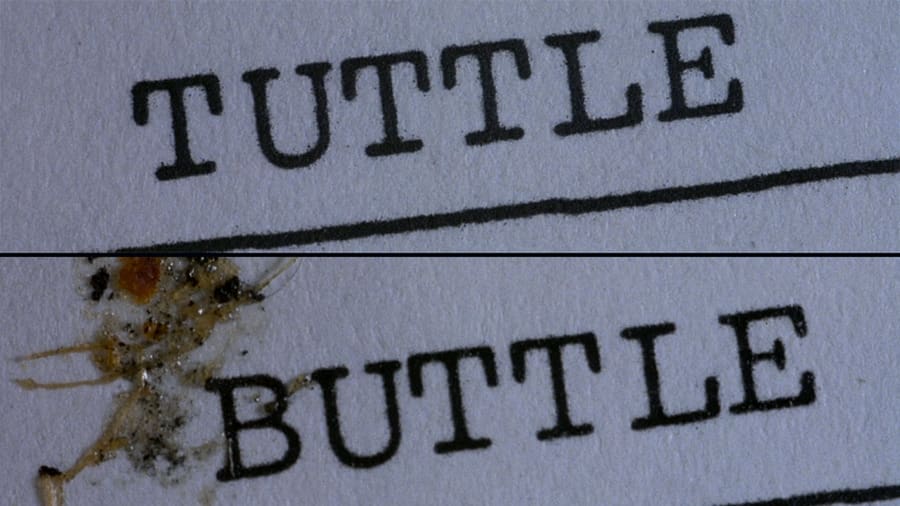Transcribed from the 4 March 2017 episode of This is Hell! Radio (Chicago) and printed with permission. Edited for space and readability. Listen to the whole interview:
People are altruistic and kind. We all have an inner Buddha nature of love, compassion, and wisdom. And there’s no god. There’s no external force that tells us what to do or how to do it. We need to understand that we’re all interconnected, both with each other and with the planet. That’s a really basic assumption in Buddhism and in Buddhist economics.
Chuck Mertz: What if there was a different, more compassionate, less selfish way to approach economics that could lead to less inequality and suffering and might actually make it so we don’t completely destroy the planet? That would be great, right? Well, our next guest thinks she’s found it in Buddhist economics. Here to explain what a Buddhist kind of economics could be, economist Clair Brown is author of Buddhist Economics: An Enlightened Approach to the Digital Science. Clair is an economics professor at UC Berkeley and a practicing Buddhist. At UC Berkeley, she now teaches a seminar on Buddhist economics.
Welcome to to This is Hell!, Clair.
Clair Brown: It’s wonderful to join you, Chuck.
CM: Over the past couple of weeks, every person I’ve told that we were going to have an economist on to discuss Buddhist economics—they all asked if it was a contradiction, an oxymoron, suggesting that economics and Buddhism simply don’t go together, that the exchange of currency for goods and services or any kind of economic relationship is simply not Buddhist. What does that say about our Western view of Buddhism? Or, to what degree are Buddhism and economics inherently incompatible?
CB: That’s a good question. Because it is oxymoronic, in a way, in that economics is all conceptual and Buddhism is experiential. And yet the Buddhist teachers will quickly tell us that that’s okay; we need to think about ideas and concepts, and there’s a strong tradition of inquiry in Buddhism. The Dalai Lama says not to accept anything without inquiring into it. Struggle with it, push it—he’s really pushed neuroscience, for example, and thinking about how the brain works. There’s a long tradition in Buddhism of an intellectual insight.
I was teaching Econ 1, and we were doing a terrible job of explaining inequality and global warming—our two biggest challenges—and we assumed people were selfish, although all these lab tests in economics show people, in fact, are altruistic. I was out walking my greyhound, and I thought, how would Buddha teach Econ 1? He certainly wouldn’t teach it the way I’m teaching it.
CM: You write, “Economics affects how we live and how happy we are, yet most people ignore economics even though it has a powerful impact on our lives and our future. Take our two biggest worldwide challenges, global warming and income inequality. United Nations climate scientists warn that time is running out if we are to avoid destroying our planet and our way of life. Income inequality rivals that of the Gilded Age, with economists predicting that inequality will continue to grow along with political turmoil. Both of these challenges are profoundly influenced by economics. Overcoming them will require a complete rethinking of our economic system, our lives, and what matters to us. We must learn to live in harmony with nature and with one another.
“But there are those on the right and the left who see economics and living in harmony with nature at odds with one another. That is, any attempt at living in harmony with nature will undermine profits, and anything that creates large profits is likely bad for the environment, as if it’s a zero-sum game.”
How possible is it to have an economic system that lives in harmony with nature? Won’t living in harmony with nature cut into profits, thus lowering our quality of life when it comes to access to goods and services?
CB: We are at a point right now in heating up the atmosphere that three major studies out of major universities say if we don’t learn to live in harmony with nature and care for nature, we’re going to have massive losses in global assets; we can’t afford not to immediately go to reducing climate change and global warming.
We already know, in fact, we can no longer afford to ignore what we’re doing to the atmosphere and our polluted air and water. So I think that’s not an issue anymore. I think the issue is convincing the fossil fuel industry—with the enormous impact they have on politics—that they can’t keep digging up coal, oil, and gas. We already know that we have to keep known reserves in the ground to not overheat the Earth. We know these things. It’s a social choice to decide that we will meet the target of the UN goals of not overheating the Earth. We can keep the increase below the two degree Centigrade that we all agreed upon.
CM: Buddhism aside, shouldn’t people of any religion—especially through the lens of their religion—also see that something is clearly wrong? I was raised a Christian (I’m a recovering Roman Catholic), but if I were to apply what I know about Christianity to free market economics, especially considering that my religious sensibilities would be very offended by suffering and disparity.
So why in particular should a student of Buddhism have difficulty grappling with the troubling disconnect between free market economics and the issues of the real world? Shouldn’t anybody who believes in nearly any religion see the same problems?
CB: You’re right. Every major religion has an equivalent of the Golden Rule, the equivalent of caring for others and not killing people or the planet. That goes across all religions. And every single major religion has some kind of a statement that supported the Paris Agreement of 2015.
But where Buddhism comes in, for me, is the belief that people are altruistic and kind, that we all have an inner Buddha nature of love, compassion, and wisdom. And there’s no god. There’s no external force that tells us what to do or how to do it. We need to understand that we’re all interconnected, both with each other and with the planet. That’s a really basic assumption in Buddhism and in Buddhist economics. The minute you say everything is impermanent, and we’re all interconnected, then you have a completely different way of thinking about what you want from the economy and how to maximize social welfare, because how well everyone is doing matters.
But even more importantly, it matters whether people are living a meaningful life, with their relationships, with their communities, with their nations. Do they have health care? Education? All the things that they need to develop their full potential? It’s a very different way of thinking about what we want from our economy, especially for those of us in rich countries where we already have way too much to consume.
CM: You write, “Free market economics assumes that markets produce optimal outcomes and people have the resources to create satisfying lives. In measuring national well-being, economics focuses only on income and consumption, and excludes many of the pressing issues that define our modern life.”
I’m so glad you brought this up, how there is this disconnect between economics and daily life. How much do we disconnect the pressing issues that define our modern life from economics? How much do we hold the economy responsible or consider its role in the pressing issues that define our modern lives? And how much do we put it aside as something that’s inevitable and therefore shouldn’t really be discussed in terms of why we are happy or unhappy?
CB: One of the problems with inequality is that growing inequality makes almost everyone unhappier. We define our well-being and how well we’re doing by looking at those above us, so when the people at the top keep getting all the fruits of economic growth and have more lavish houses and vacations or whatever, and our incomes are stagnant, everyone feels less well-off. Because, relatively speaking, we are.
And then, we are told time and time again that all this inequality will eventually lead to disharmony and social unrest. And you know what? It has. Now we’re reaping the fruits of inequality. People are feeling dissatisfied with their lives. There is enormous social unrest, as you know, and political turmoil. And people aren’t feeling very good about what’s going on, both in their daily lives but also in society.
So we’re sort of at an impasse, and I think a lot of it has grown out of the rise in inequality combined with the fight over global warming. Because the fossil fuel industry has pretty much taken over the politics of the country and has tried to convince people that we can just keep going when of course we can’t.
Anyway, countries with more inequality have lower indices of well-being and happiness. People are less healthy, they are less educated, they have more crime problems, they aren’t doing well socially or economically. And if we reduce inequality across countries, these social and economic well-being indicators get better.
That’s a social choice. Inequality and global warming are social choices made by our government policies and our social norms. We could be doing so much better if we would reduce inequality, if we would make a firm commitment to build a clean energy economy, a modern economy—which, by the way, would actually be a really healthy economy. Every road map has said that. We have the technology and we could build a modern infrastructure and create a modern competitive economy at the cost of about one percent of GDP. Which is nothing.
We have the technology. We could afford it. We just need to do it. And once again, the negative role of the fossil fuel industry is very critical in this. And, of course, a lot of those people are now running the Trump administration.
How do we develop our relationships and have experiences that are meaningful? How do we develop our inner lives so that we are no longer out there chasing materialistic goods and instead we have family lives, work lives that are meaningful and feel good and make us happy? Everyone can be happy. The world is not a zero-sum game
CM: You describe a Buddhist approach to economics in which people are regarded as more important than output, and a meaningful life is prized above a lavish lifestyle. How much would Buddhist economics threaten a lavish lifestyle? And if so, how much of a threat would Buddhist economics be to the one percent, the one percent who have a significant impact on decision- and policymaking in the US?
CB: Certainly until they become enlightened or at least a little bit more socially aware, they would hate it. They would really hate it. But we have the numbers. We have the data, we have the studies. If we reduce the consumption at the top—rich people, their goods and services are called “positional” or “status” goods. They are used strictly to mark themselves by how lavish their homes, their yachts, their vacations are.
It’s really just a marking process, and it doesn’t add to social welfare. So if we transfer income from the top one percent down to the bottom forty percent, where they really do need more food, better places to live, healthcare, education—they need the things to make their lives meaningful and comfortable, especially for their children—then we really increase social welfare. We increase social welfare when we transfer income from positional goods to basic goods.
To be honest, I don’t think we can wait for the one percent to do that. The 99% have to say—or at least sixty percent of us have to say—Enough! We want to increase social well-being by redistributing from positional status goods down to the basics that everyone needs.
We’re a very rich country. We don’t really need to focus on how big our pie is, our GDP output. We need to focus on how the pie is divided, and economists have been doing that for decades. But what Buddhist economics says is that we need to focus on what’s in the pie. To what extent are we degrading the environment? To what extent are we giving people the social networks and relationships and the life they want and need? How well are we doing with education and healthcare? Those are the things that we need to have in the pie. It’s not just size, it’s division and what’s in the pie.
CM: You write how you “join the chorus of economists asking whether there is an alternative to an economy ruled by desire and ill-equipped to address the challenges of environmental deterioration, inequality, and personal suffering.”
Last week we spoke with David Broder, who lives in Rome, and writes about anti-Trumpism. David is concerned that the focus on opposing Trump above and beyond all else could be problematic, as the left in Italy had focused on anti-Berlusconism instead of working on an alternative to Berlusconi. David argued that in Italy, the left’s embrace of neoliberalism, which Berlusconi also supported, and their lack of an alternative program—instead focusing on hating Berlusconi—not only failed but it ended up destroying Italy’s left, leaving a situation where the only populism was rightwing populism.
Could Buddhist economists be the alternative program that the left is not offering but could offer? They say there is no alternative. How much potential does Buddhist economics have to be that alternative program so we’re not just focusing on anti-Trumpism but we’re actually offering an alternative?
CB: I think it definitely could. I think Buddhist economics definitely provides an alternative way of thinking and being and developing the economy. We need progressive tax reform. We need to rebuild the infrastructure—we need to make it a modern, clean energy infrastructure. We need to relieve suffering, including that of many of the people who voted for Trump.
I have enormous sympathy and caring about many of the Trump voters who have been suffering. It’s just they’re misguided and they were given scapegoats: globalization and immigration is what was causing the problem. Of course, those weren’t the right answers. But we needed to reach out to them and say, yes, you’re suffering. Let’s think about how to make your lives better along with the entire country.
Buddhist economics could bring together a large group of people in thinking about how to create comfortable, meaningful lives for all of us, and we could all do much better. I think that it’s time for us to think about working much more in harmony with people—while we also absolutely have to stop the vicious Trump policies against the Earth, against immigrants, and against human rights. We will have to keep rallying in the streets to stop some of these policies, because they’re dismantling the institutions that would be a critical part of Buddhist economics.
CM: You write, “Buddha taught that all people suffer from their own mental states, with feelings of discontent that come from desiring more and more. The Dalai Lama tells us that the feeling of not having enough and wanting more does not arise from the inherent desirability of the objects we are seeking but from our own mental illusions. Buddha taught us how to end suffering by changing our states of mind, which translates into finding happiness through living a meaningful life.”
This reminds me of a conversation I recently had with Vyvian Raoul, who has a new book out on subvertising—that is, subverting advertising in public spaces. Vyvian started his book with a quote from Sut Jhally, a professor of communications at the University of Massachusetts, Amherst, whose work focuses on cultural studies, advertising, media, and consumption. Jhally says, “Twentieth century advertising is the most powerful and sustained system of propaganda in human history, and its cumulative cultural effects, unless quickly checked, will be responsible for destroying the world as we know it. As it achieves this, it will be responsible for the deaths of hundreds of thousands of non-Western peoples, and will prevent the peoples of the world from achieving true happiness. Simply stated, our survival as a species is dependent upon minimizing the threat from advertising and the commercial culture that has spawned it.”
How much is advertising, in your opinion, an impediment to having a Buddhist approach to economics? How much is advertising contributing to our discontent? How much is it brainwashing us in a way that makes it so the public will be opposed to Buddhist economics?
CB: I think advertising is powerful, and I love the quote you just read. I think it’s pushing the right button. But then the question becomes, how do we get around this? A lot of people, when they hear the Dalai Lama explaining that there’s nothing inherent in those goods that’s going to make you happy. We have many economic studies now that say when you go buy something, or win something, you’re happy for a very short time, and then you revert back to your unhappy state or previous state of happiness, and start chasing the goods again. It’s this endless, relentless chasing of goods or power or sex or whatever it is you’re dying to have. That’s what you want to let go of.
In Buddhist economics, everyone needs to have the basics, enough to be comfortable. We want to help them think about what’s really important. How do we develop our relationships and have experiences that are meaningful? How do we develop our inner lives so that we are no longer out there chasing materialistic goods and instead we have family lives, work lives that are meaningful and feel good and make us happy? One thing about Buddhist economics I like is what we are told continually by the Dalai Lama and others: that everyone can be happy. The world is not a zero-sum game. The nice thing about Buddhist economics is that when you are better off and do better, it helps me.
Think of Indra’s Net. Have you ever seen Indra’s Net? It’s great. It’s this infinite net, and every single knot has a jewel in it that reflects all the other jewels. Any time something happens with one jewel, it’s reflected in all the jewels. That’s the Buddhist image of the interconnected, which I happen to like a lot, and you combine that with impermanence. We are all interconnected, and we’re all impermanent, so by the way while you’re chasing all these goods and services, what are you getting for it? People realize it’s impermanent. I have a closet full of crap. At some point, let’s move from closets-full to mindful. From the market economy to the Buddhist economy.
We aren’t going to be ascetics. Buddhist economics knows everyone wants a comfortable lifestyle. There will be plenty to produce. It’s just now we’re going to share it worldwide. We have enormous needs worldwide, for food, water, shelter, housing, a clean economy, new technology, healthcare, education. There are so many things our economy could be producing.
CM: You write, “On the same weekend in January 2015, two very different articles appeared. One, in the highly respected journal Science, reported that threats to our environment endanger our way of life. The other, in the New York Times, described the servicing of private super-yachts that require professional crews and cost millions of dollars. The Science article reported that an international team of eighteen scientists have found that four of the nine Earth biophysical processes crucial to maintaining the stability of the planet have become dangerously compromised by human activity. The New York Times article reported that more than one fifth of the estimated five thousand super-yachts in the world were actually purchased in the last five years, during the Great Recession.”
You add, “I suspect that many more people paid attention to the New York Times article than the Science article, despite our knowledge about the disastrous damage that we are inflicting on the Earth. Consumption continues to fascinate and accelerate. Materialistic drives are pushing us towards the Sixth Extinction, as many are now referring to today’s ongoing extinction of species.”
To you, what explains why we are still fascinated with hyper-consumption while not being as interested in the way hyper-consumption is destroying the planet?
CB: I think the yacht story is a wonderful story. I live in the Silicon Valley area, so when I go out I have actually heard CEO titans bragging to each other about exactly how long their yachts are. And they do it in inches. It’s quite shocking. I’ve even heard captains of the finance industry bragging about their wine openers, and how exactly they work and how fancy they are. Whatever the newest, latest gadget is—those are the positional status goods. They sit around and compare and brag.
Even though the rest of us are somewhat intrigued by reading about or hearing about these things, in fact when you talk to people seriously about it—like when I talk to my students about it and we talk about these examples—they are totally appalled. They can’t believe that the people who we should be “respecting,” our CEOs and the business leaders we have, are sitting around talking about how long their yachts are and how they open their wine. At some level people are quite disgusted by it.
CM: You write, “The term ‘Buddhist economics’ was first coined by E. F. Schumacher in his 1973 book Small is Beautiful: Economics as if People Mattered. Schumacher foresaw the problems that come about with excessive reliance on the growth of income, especially overwork and dwindling resources. He argued for a system that valued individual character development and human liberation over an attachment to material goods. In Schumacher’s view, the goal of Buddhist economics is ‘the maximum of well-being with a minimum of consumption.’”
But that would seem to undermine economic growth. Can we profit off of well-being? Can well-being feed us, clothe us, and keep a roof over our heads as well as an economy that focuses on consumption?
CB: Yes. You see, we need a robust, strong economy to rebuild our modern infrastructure. We need a robust, strong economy to provide education and healthcare and all the public goods and services we need to thrive as a country and as individuals. Buddhist economics isn’t against economic growth. We’re against disproportionate economic growth. 95% of economic growth has been going to the top five percent of people. Our economic growth is just providing a lot of consumption goods at the top. It’s not providing well-being for everyone across the board.
We can’t rely upon economic growth anymore to “raise all boats,” as economists put it. But we need economic growth because we need the innovation for the new technologies we want. We need to be able to develop a modern clean energy infrastructure. We need to do better with education, with healthcare. There are lots of ways we can use economic growth to improve everyone’s well-being. It doesn’t have to be just more goods and services for the rich. That’s the important point. I think that’s very consistent with Schumacher.
CM: You write, “Free market economics holds that human nature is self-centered and people care only about themselves as they push ahead to maximize their incomes and fancy lifestyles.” How much do you think free market economics have made us more self-centered? How much do we recognize the impact that this economic system is having on our decisionmaking, our politics, our personalities, even the way that we relate with other human beings?
CB: I think it has an enormous impact. That’s why I really push measuring economic “performance” holistically and not by income per capita. I think it’s really important that we totally rethink how we measure economic performance. There are lots of ways to do it, we just need to do it.
Somebody studied what happens to students after they take an economics course. Do they become more selfish? The answer was yes, they do. Taking a free market economics course, students start to behave more selfishly when they’re taken to the lab to play games.
CM: That’s amazing. Is Buddhism, then, anticapitalist?
CB: You know, Pope Francis taught us every time you put carbon in the air, it’s a sin, because you’re hurting people. And the Laudato Si is a wonderful proclamation. But where Buddhist economics differs with the Catholics is around population control—that the global warming problem is not just consumption, as the Pope argues, but it’s also population. If we want to give a comfortable life to everyone on the planet, then we definitely have to care about how many people there are. Right now if everyone had the lifestyle we have in the US, we would need four planets. Which is obviously not possible. And that was when there were only seven billion people. Now we’re at seven and a half and going towards nine billion by 2050, they think.
So we need to care about how many people we want to provide a comfortable, meaningful life to. That’s where Buddhist economics differs from Pope Francis and the hierarchy of the Catholic church (though, as I said, not most practicing Catholics).
CM: How bad for the economy is having happiness as a goal? After all, if we’re happy or don’t believe we can find happiness in purchasing goods, those goods won’t be purchased and workers won’t be employed to make, market, distribute, and sell those goods. So isn’t unhappiness best for the economy?
CB: We aren’t going to be ascetics. Buddhist economics knows everyone wants a comfortable lifestyle. There will be plenty to produce. It’s just now we’re going to share it worldwide. We have enormous needs worldwide, for food, water, shelter, housing, and all the things that people need to live a comfortable life. And we need to develop a clean economy and new technology. We need healthcare, education. There are so many things our economy could be producing. Don’t you worry. We will keep the economy going.
CM: Clair, thank you so much for being on the show this week.
CB: It was terrific, Chuck, thanks so much.





